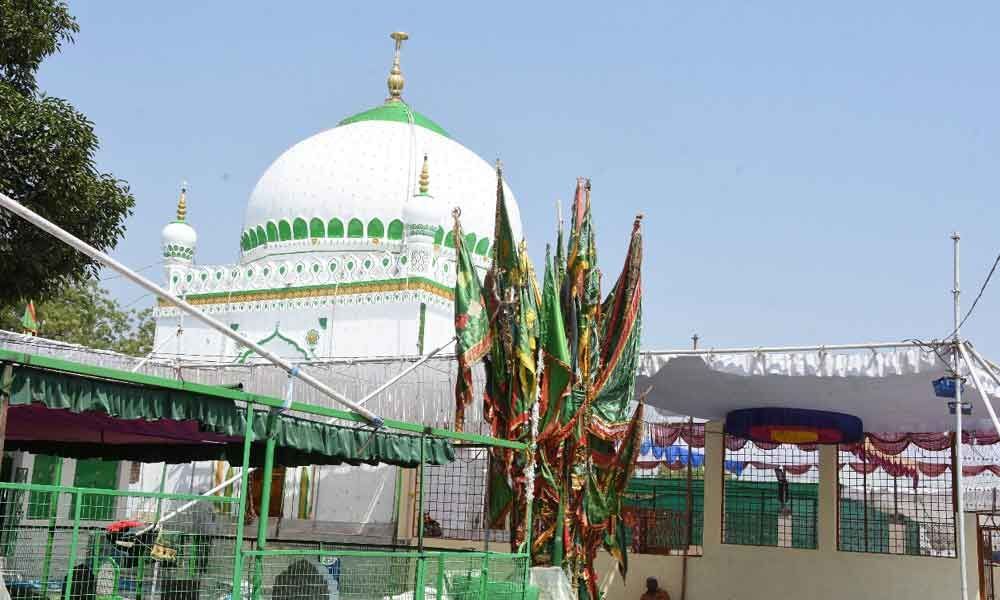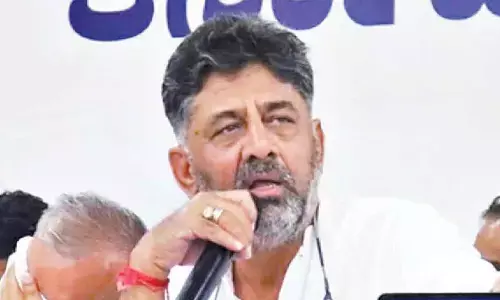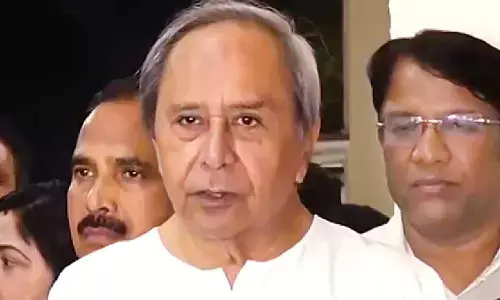A dargah that has roots in Baghdad

What started as a mission for propagation Islam in India some 500 years ago by one of the seven descendents of Huzoor Sayyadina Ghousul Aazam Dastageer Rahmatulla Alaih of Baghdad, is now an epitome of communal harmony among all followers of religions.
Warangal: What started as a mission for propagation Islam in India some 500 years ago by one of the seven descendents of Huzoor Sayyadina Ghousul Aazam Dastageer Rahmatulla Alaih of Baghdad, is now an epitome of communal harmony among all followers of religions.
Hazrat Mashooq-e-Rabbani Rahmatulla Alaih who was born in Baghdad had his early education at his home, then known as a knowledge hub, under his father's direct supervision. He became khalifa (chief spiritual authority of Islam) at the age of 12 years. Later, he undertook journey to Harmain (visit of holy cities Mecca and Medina) along with his disciples and followers at the behest of his mother.
In holy Medina, religious elders conferred thetitle of Mashooq Rabbani (Lover of Allah) and told him to proceed to Deccan (southern part of India) for the propagation of Islam.
Along with a group of his followers, Mashooq Rabbani believed to have reached Warangal in 916 AH (1510-1511 AD). Initially, he resided in Somaram village where he meditated in standing position for about a dozen years. He later settled at Qazipura village after local ruler Qazi Ziauddin gave him a piece of land. Soon Mashooq Rabbani became popular among the masses for his miracles and kindliness. He treated people irrespective of communal lines with his prayers.
The presence of a large number of Hindus at the Urs reflected the communal harmony and peace in erstwhile Warangal district.
Speaking to The Hans India, the 17th descendent of Mashooq Rabbani, and head of Dargah, Naveed Baba, on the first day of Urs on Friday, said: "The rituals begin with Sandal (pasting of sandal to dargah) amid Rifai Fakirs' performances. On the second day, devotees offer prayers at the dargah. The final day events include recital of Quran, Fateha and Chiraagaan." We have made elaborate arrangements for devotees coming from all corners of the globe, he said.
"Simplicity was Mashooq Rabbani's main vetue. The specialty of this Urs is that there would be no Qawwali that usually associated with any Urs in the country. Perhaps it was to ensure tranquillity for the devotees to focus on Almighty," Syed Maqdoom, renowned radio announcer, commentator and translator, said.










